Reliable Outdoor Lighting Solutions: What Type is Best According to Experts
Outdoor lighting is not just about illuminating spaces; it's an art that enhances the beauty and functionality of your home and garden. The right outdoor lighting can transform your environment, providing both aesthetic appeal and practical utility. In this blog, we delve into various outdoor lighting types, exploring how each can elevate your outdoor space.
What Outdoor Lighting Does
Outdoor lighting serves multiple purposes: it highlights your home's architecture, creates a welcoming atmosphere, and ensures safety after dark. It's an essential element that bridges the gap between functionality and style.
Different Types of Lighting
From classic lanterns to modern LED fixtures, outdoor lighting comes in diverse forms. Each type serves a specific purpose and suits different settings.
Benefits of Outdoor Lighting
Safety and Security
Well-lit outdoor areas deter intruders and reduce the risk of accidents, ensuring a safe environment for everyone.
Aesthetic Appeal
Proper lighting accentuates the beauty of your home, making it stand out in the neighbourhood.
Energy Efficiency
With advancements in technology, outdoor lights are more energy-efficient than ever, significantly cutting down on electricity costs.
Types of Outdoor Lighting
Solar Lighting
Advantages
Solar lights are eco-friendly and cost-effective, harnessing sunlight to provide illumination.
Disadvantages
Their performance can be limited on cloudy days and in areas with less sunlight.
Low Voltage Lighting
Advantages
Ideal for residential use, they are safe, easy to install, and consume less energy.
Disadvantages
They may not be as bright as line voltage options and can require more fixtures for the same level of brightness.
Line Voltage Lighting
Advantages
Offers bright and consistent lighting, suitable for large areas.
Disadvantages
Requires professional installation and consumes more energy.
Which Type Is the Best?
Solar Lighting
Best for eco-conscious homeowners looking for a cost-effective solution.
Low Voltage Lighting
Ideal for those seeking a balance between safety and illumination.
Line Voltage Lighting
Perfect for large estates or areas requiring high-intensity lighting.
Tips For Installing Outdoor Lighting
Choose a Professional:
For complex installations, especially line voltage lighting.
Avoid Unnecessary Holes:
Plan your layout to minimize structural alterations.
Consider Planning Ahead:
For ease of maintenance and future expansions.
Consider Using Motion-sensor Lighting:
Enhance security and energy efficiency.
Benefits of Motion-sensor Lighting
For Security
Activates upon detecting movement, adding an extra layer of security.
Reduced Energy Usage
Only operates when needed, saving energy.
Common Problems With Outdoor Lighting
- Short Connections: This can lead to lighting failures.
- Low Voltage Lighting Issues: May include dimming or flickering.
Troubleshooting Tips
- Test All Connections: Ensure all fixtures are properly connected.
- Clean and Maintain Regularly: Prolong the life of your lighting solutions.
Conclusion
The best type of outdoor lighting depends on your specific needs and preferences. Whether it’s solar, low voltage, or line voltage lighting, each has its unique benefits. Consider factors like energy efficiency, safety, and aesthetic appeal when making your choice. At Litehouse, we offer a range of outdoor lighting options to cater to your diverse needs, ensuring that you find the perfect fit for your home.
Frequently Asked Questions
What type of outdoor lighting is best?
It depends on your specific requirements; consider solar for eco-friendliness, low voltage for safety, and line voltage for brightness.
What are the benefits of motion-sensor lighting?
Increased security and reduced energy usage.
What are the best types of bulbs for outdoor lighting?
We recommend LED bulbs for outdoor lighting due to their energy efficiency, long lifespan, and durability in various weather conditions.
How can outdoor lighting improve home security?
Outdoor lighting enhances home security by illuminating entry points and dark areas, deterring potential intruders and improving visibility for surveillance systems.
What is the difference between solar and wired outdoor lighting?
Solar lighting offers ease of installation and eco-friendliness, harnessing solar energy to power lights without electrical wiring. Wired lighting, while requiring installation, provides consistent illumination and is ideal for areas with limited sunlight.
Can outdoor lighting fixtures be weather-resistant?
Litehouse's outdoor lighting fixtures are designed to be weather-resistant, and capable of withstanding exposure to rain, sun, and other elements, ensuring durability and reliability over time.
How do I choose the right outdoor lighting for my garden or patio?
When selecting lighting for gardens or patios, consider the area's size, the desired ambience, and the style of your outdoor space. Litehouse offers a variety of styles, from fairy lights for a whimsical touch to more robust lighting for functional illumination.

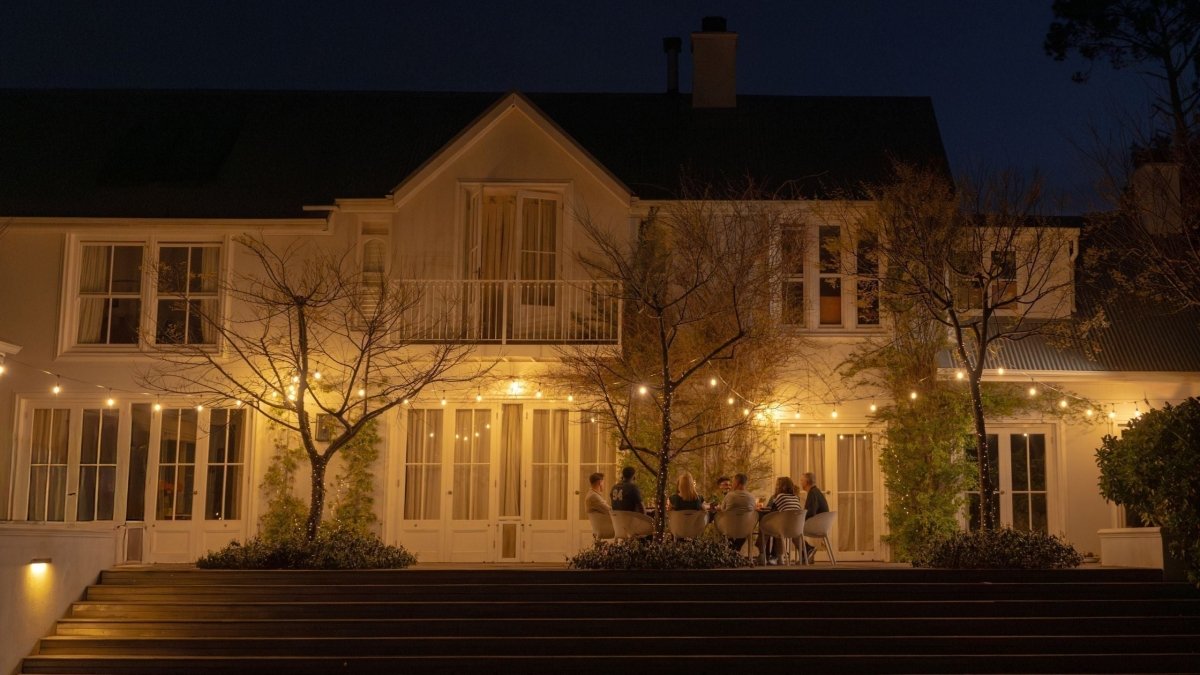
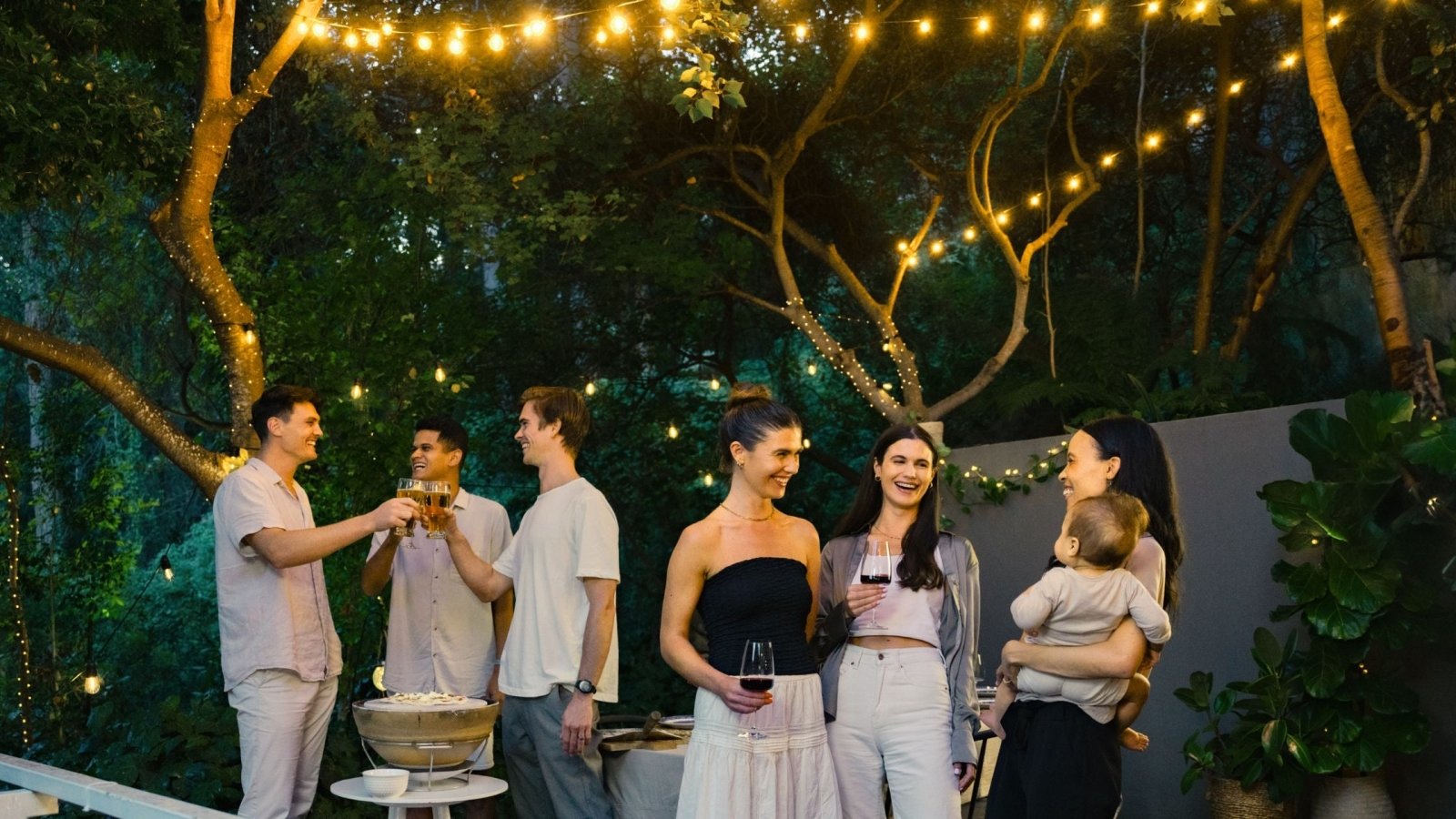
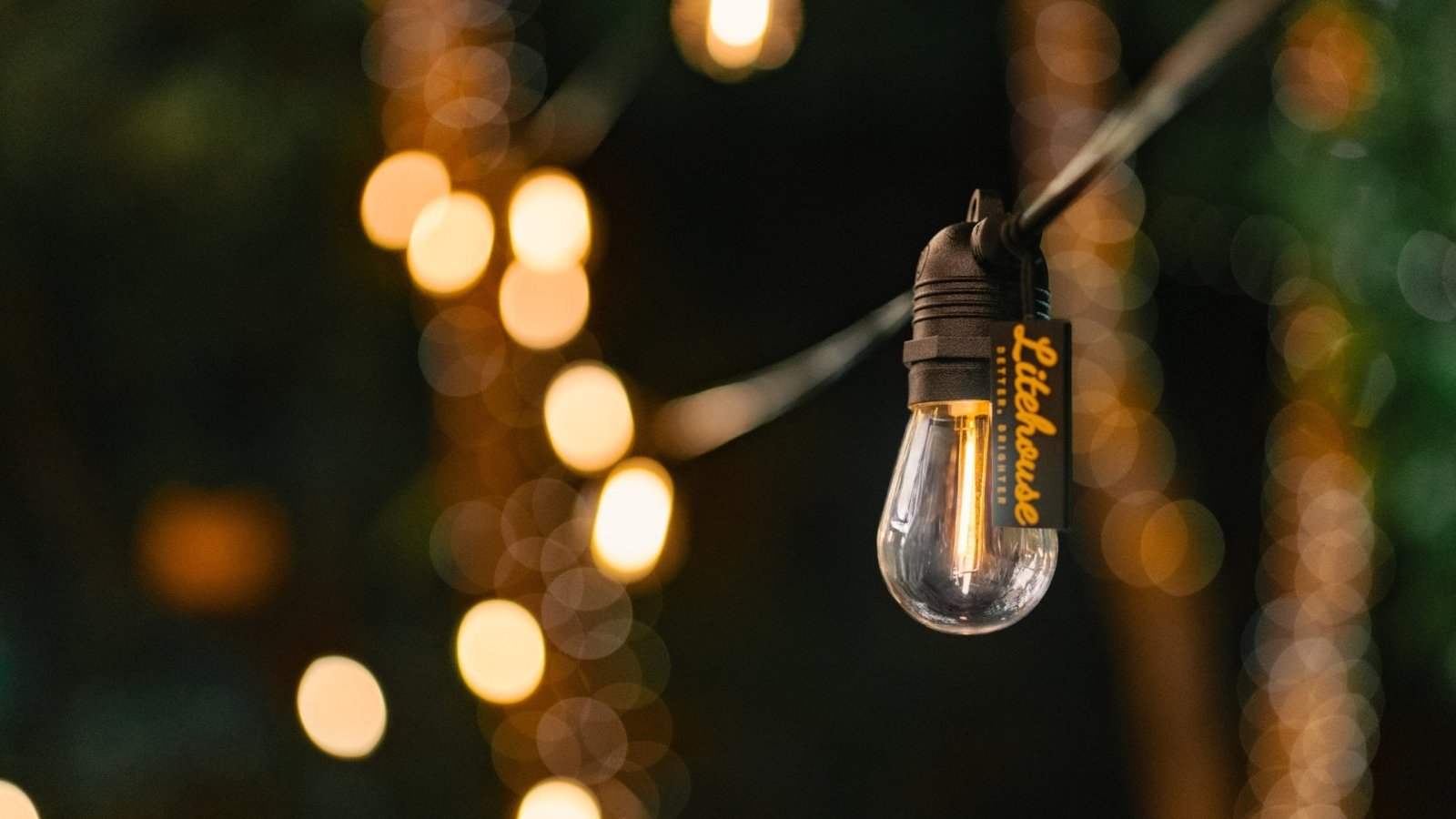
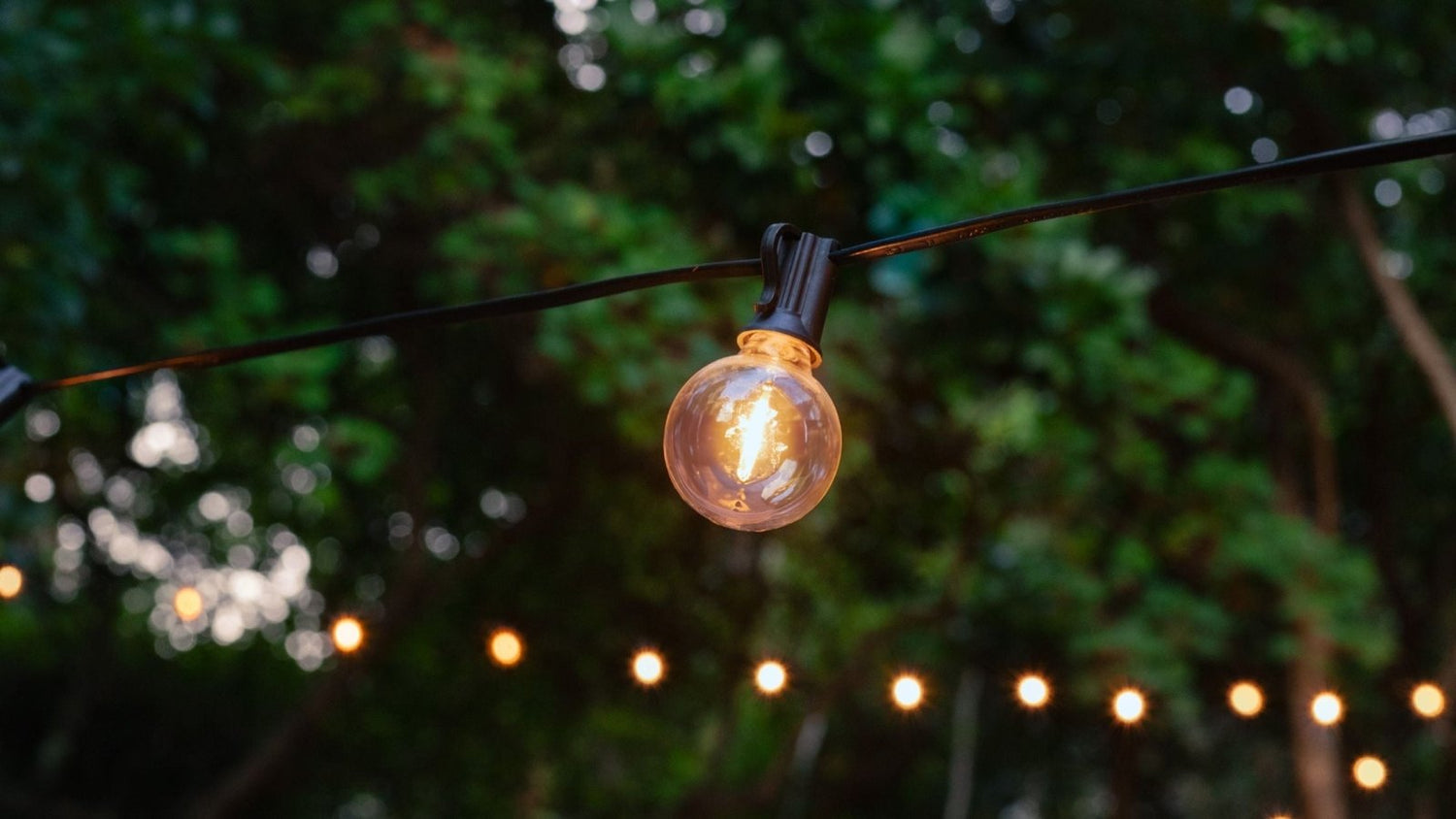



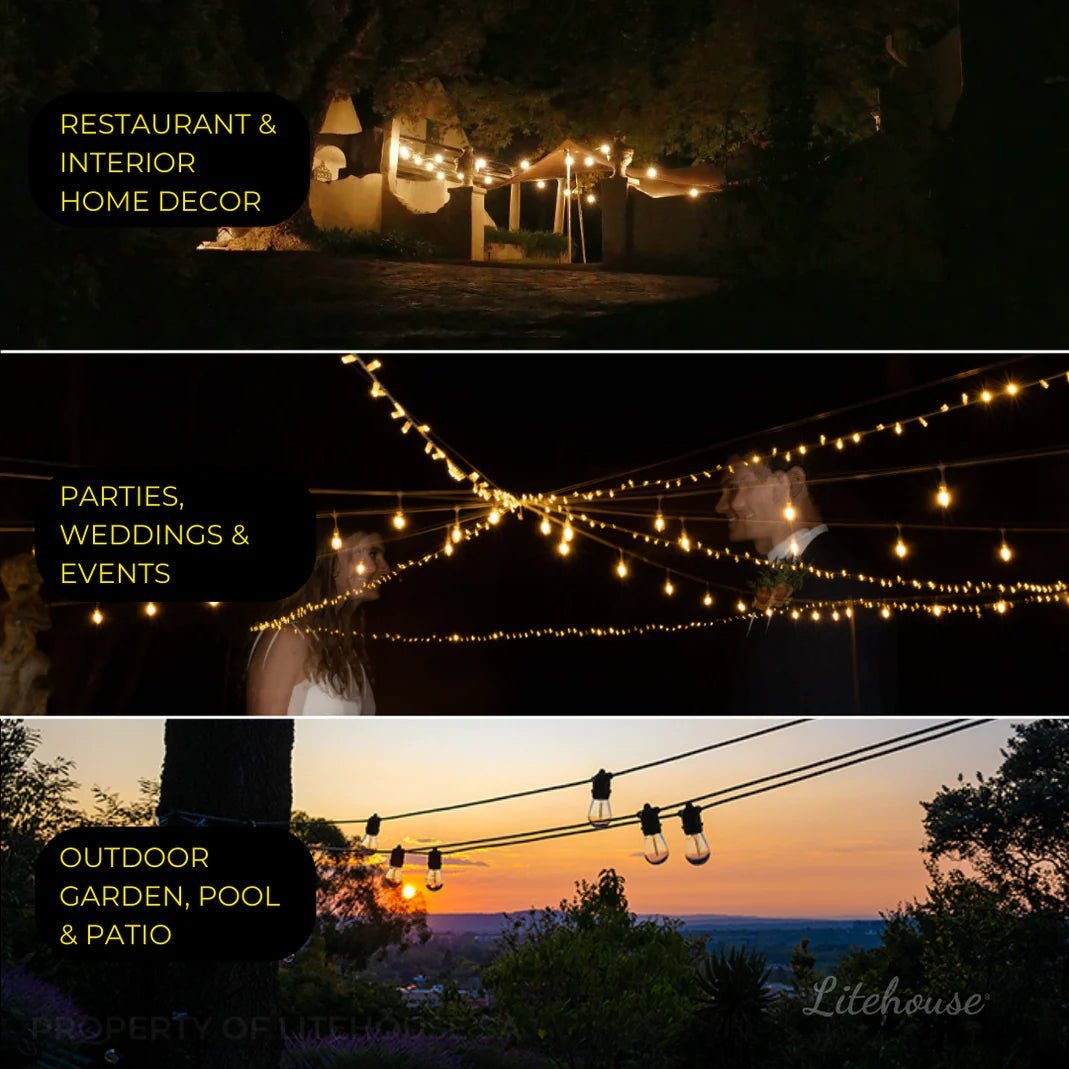
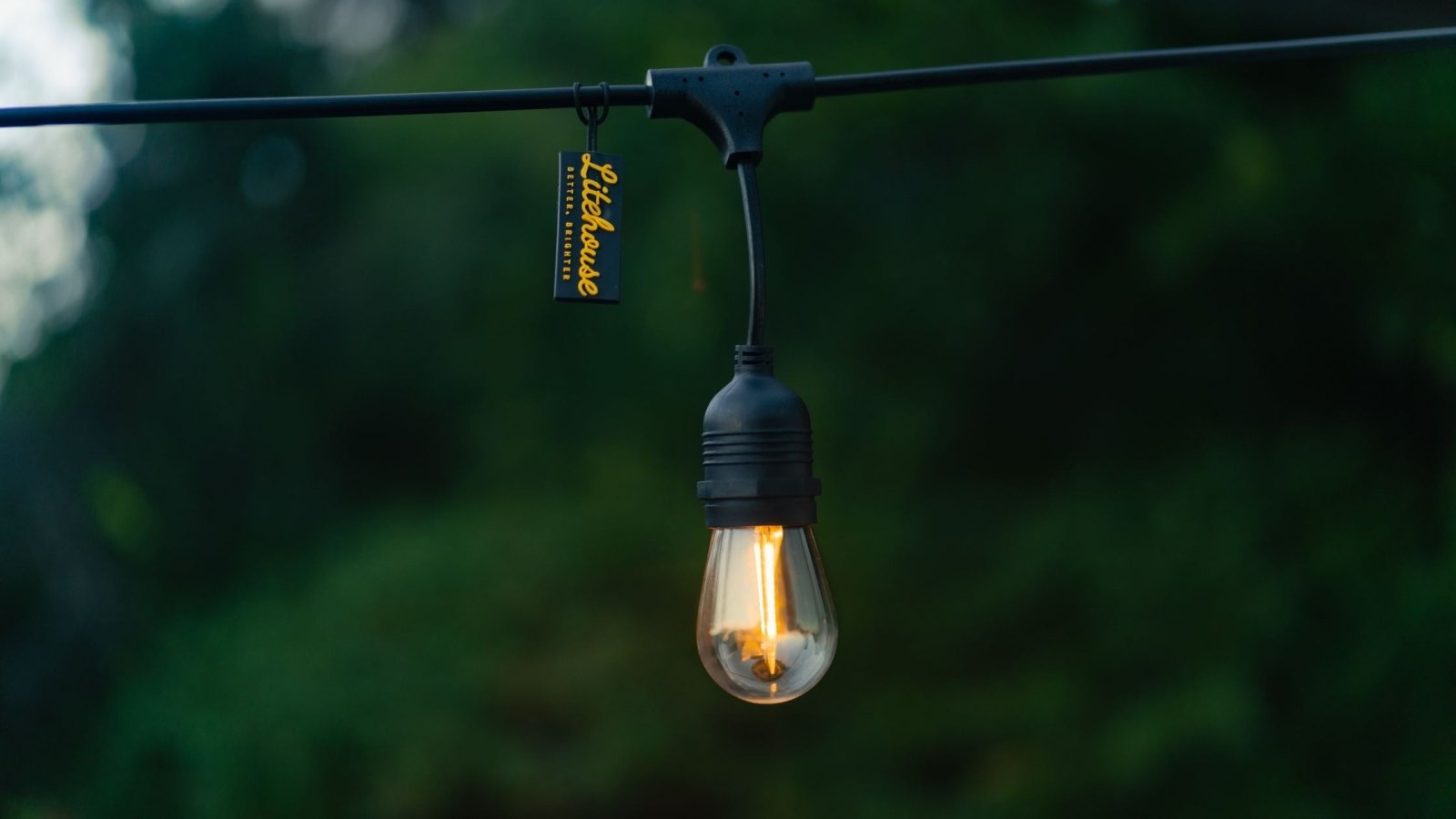



Leave a comment
All comments are moderated before being published.
This site is protected by hCaptcha and the hCaptcha Privacy Policy and Terms of Service apply.